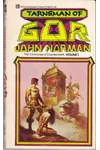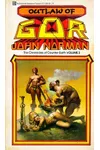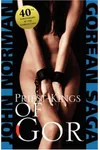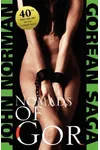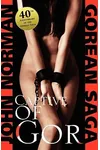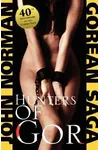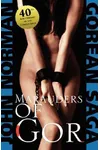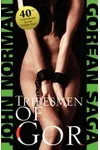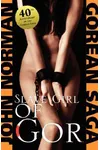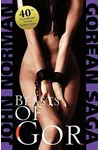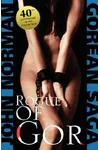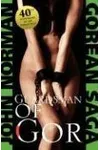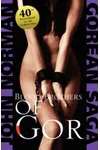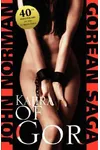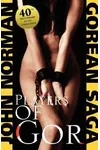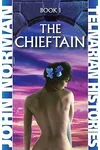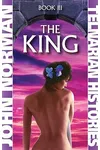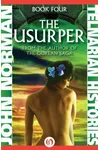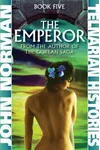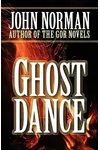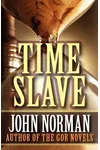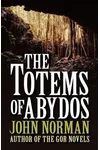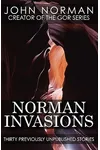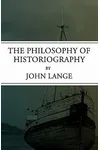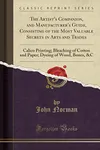Picture an American philosopher-turned-storyteller who crafted a sprawling, controversial universe that’s equal parts thrilling and thought-provoking—meet John Norman! Born John Frederick Lange Jr., this enigmatic author is best known for his Gor series, a 38-book science fantasy saga that blends sword-and-planet adventure with deep philosophical musings. Since 1966, Norman’s vivid world-building and polarizing themes have captivated and challenged readers, sparking a dedicated subculture that’s as unique as his stories.
From his academic roots to his bold narrative experiments, Norman’s journey is a fascinating blend of intellect and imagination. Let’s dive into the life and legacy of the man behind the Gorean Saga!
The Making of John Norman
John Frederick Lange Jr. was born on June 3, 1931, in Chicago, Illinois, to John Frederick Lange and Almyra D. Lange. A scholar at heart, he earned a Bachelor of Arts from the University of Nebraska in 1953, a Master of Arts from the University of Southern California in 1957, and a PhD from Princeton in 1963, with a dissertation on ethical naturalism. Married to Bernice L. Green in 1956, Norman raised three children—John, David, and Jennifer—while pursuing a career as a philosophy professor. His academic background shaped his writing, infusing it with intellectual depth. In the mid-1960s, inspired by pulp fiction giants like Edgar Rice Burroughs, Norman adopted his pen name and launched the Gor series, blending his scholarly passions with a love for adventure.
John Norman’s Unforgettable Stories
The Gor series, starting with Tarnsman of Gor (1966), follows Tarl Cabot, a British professor transported to Gor, a Counter-Earth hidden opposite our planet. This richly detailed world, populated by Earth-transplanted cultures like Romans and Vikings, is ruled by insectoid Priest-Kings who limit technology, creating a brutal, caste-driven society. Norman’s early novels, like Outlaw of Gor (1967) and Priest-Kings of Gor (1968), echo Burroughs’ swashbuckling style, with Tarl battling warlords and riding giant birds. Later books, such as Captive of Gor (1972) and Slave Girl of Gor (1977), shift focus to philosophical and erotic themes, exploring dominance and submission in ways that stirred controversy.
Norman’s style is both immersive and polarizing. His prose, often described as archaic and heroic, aims to evoke classic pulp fiction, though some critics note its heavy punctuation and word choices like “muchly.” Beyond Gor, Norman penned the Telnarian Histories, a shorter sci-fi series, and non-fiction works like Imaginative Sex (1974), which outlines his views on relationships. His influences—Homer, Freud, and Nietzsche—shine through in his blend of adventure, psychology, and existential questions, making his work a unique, if divisive, contribution to science fantasy.
Why John Norman Matters
John Norman’s impact extends beyond his books. The Gor series, despite criticism for its depiction of gender dynamics, inspired a Gorean subculture where fans role-play the series’ customs online and offline. This fandom, active on platforms like Second Life, reflects the series’ enduring allure and its influence on early online role-playing communities. Norman’s willingness to tackle taboo themes, even at the cost of mainstream acceptance, cemented his status as a cult figure. His books, once dropped by publisher DAW in 1988, were revived by E-Reads in 2001 and remain popular in ebook form, proving his stories resonate with readers seeking bold, unconventional narratives.
- Born: June 3, 1931, Chicago, Illinois
- Key Works: Tarnsman of Gor, Outlaw of Gor, Captive of Gor, Imaginative Sex
- Pen Name: John Norman
- Influences: Homer, Freud, Nietzsche
Ready to explore a world of tarns, Priest-Kings, and philosophical intrigue? Grab Tarnsman of Gor and dive into John Norman’s daring science fantasy saga!
